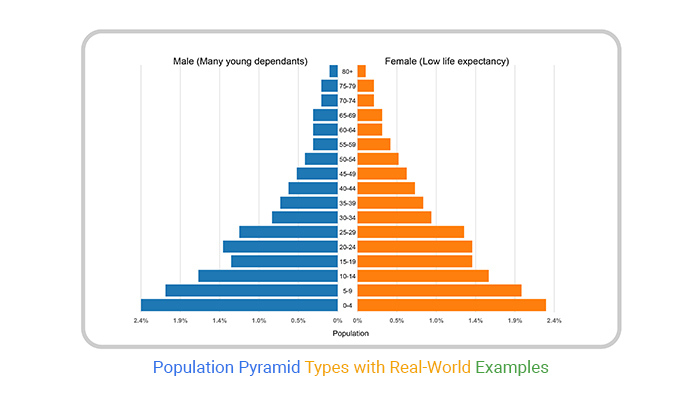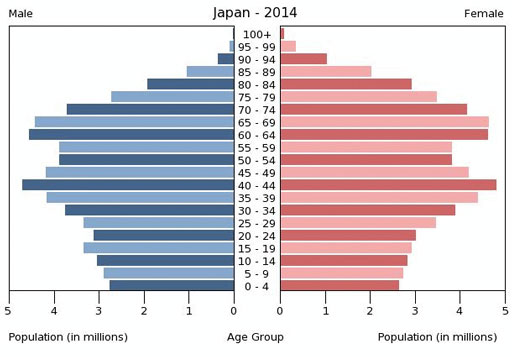Four physical factors that influence population distribution:
climate, water , landforms, and soil quality
What is the Demographic Transition Model (DTM)?
It shows how a country’s population changes over time as it develops. It develops from high birth and death rates to low birth and death rates.
Which rate indicates the average number of children a woman is expected to have in her life.
total fertility rate
What is the epidemiological transition model?
How the leading causes of death in the population have changed over time, from infectious diseases in poor countries to chronic diseases in richer and more developed countries
What are population pyramids? What does it indicate for?
Graphs that show the age and gender distribution of a population. They help indicate a country’s growth trends, economic development, and social needs.
Four human factors that influence population distribution
Economic opportunities, political stability, cultural factors, and social services
How many stages does DTM have? Pick one stage to give an example and explain it.

The number of people living per unit of land area. Usually measured as people per square KM or square mile.
Why do we need to apply the epidemiological transition model?
Understanding the Epidemiological Transition Model is essential for the government when planning interventions to address current health issues.
How many main types of population pyramids are there?
three main types

What is pro-natalist policies?
Government actions that encourage people to have more children
Why is Japan at stage 5?
Its birth rate has fallen below its death rate, leading to a declining population.
Maximum number of individuals/people that an environment can sustainably support without degrading its natural resources
carrying capacity
What is the difference between DTM and the epidemiological transition model?
DTM focuses on population change over time/ development.
Epidemiological transition model focuses on the shift in disease patterns and causes of death.
If it is stage 2 at DTM, then which population pyramid might it have and why?
expansive population pyramid because birth rates are high and death rates are falling.
Give six demographic characteristics:
age, gender, ethnicity, race, education level, and income
The main characteristics of stage 3 of the DTM.
Declining birth and death Rates, and population growth begin to slow.
(Number of Live Births / Total Population) * 1,000
Crude birth rate
What might LDC be experiencing?
Earlier stages with high rates of infectious diseases because they are not well-develop at medication and healthcare.
Give two types of population pyramids with examples of countries.
Expansive Pyramid: High birth rate, and a young population. EX: Nigeria

Constrictive Pyramid: Low birth rates and an aging population. EX: Japan

What is transhumance.
The seasonal movement of people with their livestock between different seasons.
Which stage has a low birth and death rate, and describe its natural increase? Also, please give an example of this stage.
Stage 4, which is falling and then stable.
Example: United States, because they have a low birth rate and well-developed health care. Therefore, Japan will have a low birth and death rate.
( Number of infant deaths (under age 1)/ Number of live births)×1,000
Infant mortality rate
List five stages of the epidemiological transition model
Stage 1: Pestilence and famine. Infectious and parasitic diseases.
Stage 2: Pandemic- a disease that occurs over a whole geographic area and affects many people
Stage 3:Degenerative and human-created diseases.
Stage 4: Delayed degenerative diseases. People is extending their life through medical improvements
Stage 5: Re-emergence of infectious disease and poverty.
What kind of country will experience an expansion pyramid? How can we make it balanced?
Usually, it is a less developed country, which will have high birth rates, high infant mortality, and lack access to education and healthcare.
Improve healthcare and education.